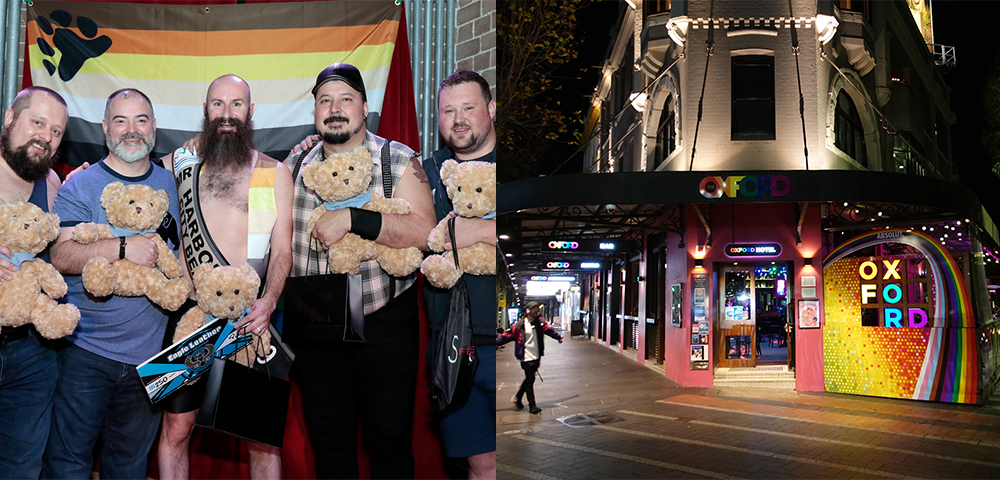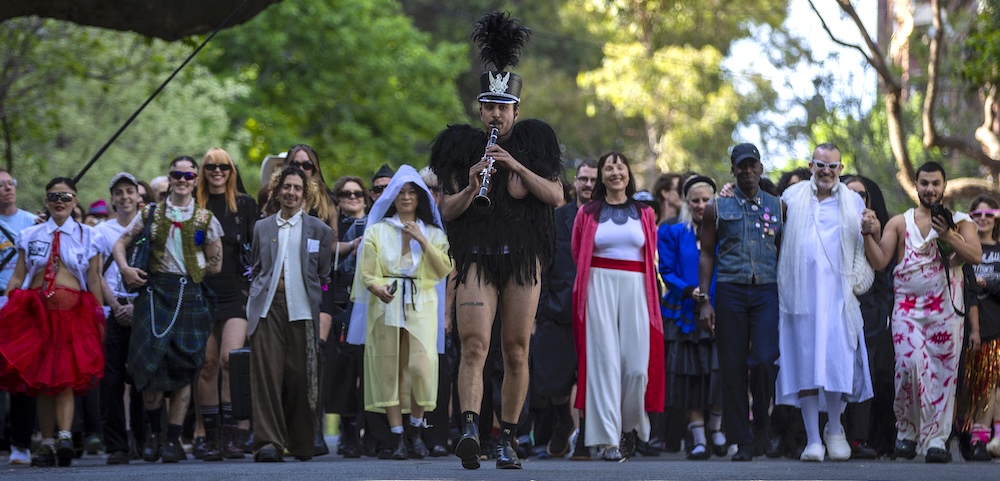
The Crisp, the Clean and the Crass
It started out with a song. Joey Arias and Sherry Vine knocked the media dead last week in a pole-dancing club performing just one number, and this week I was able to see the whole shebang. She did bang and they were mostly fabulous in their own strange way. Joey Arias did a mean Billie Holiday, and when the lights were low and Michael Tyack tinkled away, it worked a treat. Sherry Vine too is a fine interpreter of song, so much so that it seems a little mean to quibble over the problems inherent in the production. However, in theatre, as in real estate, the right location is often half the battle, and the York Theatre again proved too sprawling a space for only two performers. The use of recorded music on occasion (rather than Tyack’s skilled piano playing) was also predictably jarring and unfortunate. I can empathise with the financial decision to place these talented performers in a larger venue, but I soon found myself pining for the intimacy of the pole-dancing club.
Three cheers though for whoever altered the stage layout in the Everest Theatre, pretty much reinventing an awkward, very wide stage into something more focused and workable. The mini centred stage draws you in, working wonders for Margaret Cho and providing an appropriately cramped and intense environment for Bette Bourne’s incredible performance as Quentin Crisp in Resident Alien. It’s an odd experience, with Bourne playing the 90-plus Crisp with an appropriately glacial pace, and nothing really happens. In spite of (or perhaps because of this), it’s more riveting than rankling, more delicious than dull, as we’re allowed to focus on Crisp’s unique views on life. He’s at once individualist, conservative and Zen, but be warned -“ he’s critical about the gay community in ways that you may find surprisingly agreeable.
That was Part One of my spiel on Resident Alien, and part two is more a niggling uncertainty, a theoretical query rather than a criticism of what is a well executed production. As biographical plays go, Resident Alien strikes me as one of the least fictional interpretations of an historical figure I have seen. Although I’ve read only one of Crisp’s books and some articles, I was struck by how much of the text was familiar to me -“ to the extent of knowing at times what line was coming next. Cut and paste theatre has been done countless times before, with subjects from Oscar Wilde to Dorothy Parker -“ and what playwright in their right mind would omit the pearlers produced by such figures? But how much of the work is Tim Fountain’s theatrical interpretation of Crisp, when Crisp’s monologue to the audience, performed in the privacy and solitude of his bedsit, is derived so heavily from his public writings? The New York Times recently described the film of Harry Potter as the cinematic equivalent of a book on tape. Watching Resident Alien, I wondered whether I was watching the theatrical equivalent of Crisp on tape and couldn’t help but feel a little disappointed. I would still highly recommend the play -“ especially if you’ve never read his books.
Back at the Seymour Centre on Friday night, I attended a performance from this year’s season of Hot-Bed play readings. Damien Millar’s Cop Stories was a tender exploration of a father-son relationship, told through a revision of the myths surrounding police, masculinity and fatherly love. The structure was tantalising and tight, with only a few tweaks of sentimentality to take the edge off. Given that the actors were given only six hours to rehearse a reading that was highly physical and dramatically exciting, it was a credit to all involved. Yes, I am biased (my own play has benefited from the Hot-Bed program last year), but the night was another highlight of the festival. Hot-Bed events are cheap to attend, the work is fresh and the performances no less convincing for their rawness.
Speaking of raw performances, I attended my second session of The Boxing Club on Friday night, an event that has proved extremely popular and for many, is hugely successful. There’s no doubting the bravery of Mardi Gras in holding the nights, from a political as well as an aesthetic perspective. As passionate, annoying and inspiring as you might expect, this is a great innovation and a vibrant substitute for the festival club. And having had a go myself, after being semi-slandered and misquoted by an unnamed community member (ahem), I can tell you that it is terrifying but ultimately worthwhile. At least I think it was worthwhile. I haven’t tried to have lunch again in this town, and it may prove difficult.
Off the Mardi Gras path, I attended the glamorous opening night of Oh! What A Night on Saturday, bumping shoulders with half of Human Nature, Ian Roberts and Maria Venuti (but I don’t like to name-drop). There’s little else to report. The songs are catchy and very familiar, the dancing is energetic, and eye-candylicious newcomer Martin Crewes is a complete superstar. People clapped, cheered and even yelled out advice to Marcia Hines’s character when prompted. It went off like a sequined pantomime should, with the songs of the Village People especially (and weirdly) popular with the predominantly straight crowd. It will be a huge hit and was a lot of fun for many people, who gave it a standing, dancing ovation. However, and it’s a big however, the script was truly awful and George Kapinaris’s mincing queen character makes Mr Humphreys look like Chopper Reed. More importantly, despite the fact that we were told repeatedly that the year was 1976, the songs performed ranged anywhere from the early 70s to the 80s. The anachronisms soon become unbearable -“ they even used Can’t Stop The Music, a song written for the 1981 film that was considered the death knell for disco worldwide. Seriously, the show had breakdancing and legwarmers! Oh! What A Night was one of the most cynical and commercial pieces of theatre I have ever seen. People were dancing on the ceiling; I was crying in the chapel (anachronistic song references intended).
And from the ridiculous to the sublime, there was just time left to check out Paul Capsis’s latest show, Capsis Vs. Capsis, at the Opera House. There’s little to report here that hasn’t already been said and it’s all good. Capsis confirmed his position as one of this country’s most accomplished, imaginative and hilarious interpreters of song. This time around, the show was enhanced even more by his 19-year-old pianist Aron Ottignon, whose jazz solo threatened to upstage Capsis himself. The only haggle is that there wasn’t more new material, although watching Capsis do Judy Garland singing Diamonds Are Forever or Marlene Dietrich singing Abba’s Money, Money, Money still packs a punch.









